by on January 12, 2016 in Education, Homeschooling, School-Aged
With the flip top wooden desks and lack of computers or iPads, you could easily mistake my daughter’s classical school for something out of the 1950s. But it’s not a longing for the good old days that motivated my husband and me to make the counter-cultural decision to send our daughters to a classical school.
After five years of having children in a classical school, these are the reasons I am so happy my husband and I made the decision we did:
- They learn how great minds learned for centuries.
Classical education is pretty much how our grandparents, and every generation for centuries prior, were taught. These days schools and universities place such a high priority on critical thinking, but classical educators believe that you cannot truly think critically unless you have the facts and knowledge upon which to think. That’s why during the early years of classical education, called the Grammar Stage, the focus is on making elementary-aged children proficient in reading, writing, math, and grammar. Memorization still plays a large role in classical schools: whether it’s math facts, poetry, or phonemes (i.e. phonics), the early years of classical education provide the foundation for being able to use logic and reason later on in school and in life.
- There is little to no screen time at school.
Some people are turned off when they find out classical schools don’t pad their admissions brochures with specialized technology classes. But what good is a computer coding class in second grade if a child hasn’t yet mastered the basics of math? Proponents of classical education believe that a child who excels at math, reading, and writing can pretty much excel at any of the other subjects or skills (including computer) later in his education and life. Besides, do schools really need to spend several hours a week (and a lot of money!) teaching children something they probably have already learned on their own home computers? I’m not convinced. For decades children have proven that they are usually way more savvy than their elders when it comes to technology.
- Children develop a true love of learning.
The aim of classical education is not perfection, but mastery. No doubt the curriculum is rigorous, but students who feel the accomplishment of mastering something difficult are much more likely to move onto something more challenging and more likely to enjoy it.
This fall my kindergartner begged me to go to the Meadows Museum because they had a couple of prints of Albert Dürer, whose Praying Hands she had studied recently. She got frustrated a few times in class because it was difficult to try to recreate that print. But when she finally did complete it, she waselated and became eager to go see more of his prints in person.
Honestly, I am not sure what exactly her amazing art teacher did to foster such a sincere hunger to learn and see more, but she did! It’s the same way with music and nature in classical schools – they are taught to always observe, and enjoy, the beautiful world God created around them.
- Children learn to connect the dots, with history as their framework.
Growing up I learned how to take tests well and include the things my English teachers were looking for in essays. But when I got to college I realized I utterly missed the big picture. Classical schools teach in a way that allows children to naturally make connections between events and people in history.
Take, for example, the Texas history my daughter is learning this year. A typical social studies book with a passage on William B. Travis and a test on important dates and people at the Alamo could in no way impact her like the letter written by Travis at the Alamo that she memorized and can recite as passionately as if she were right there with him. Or the reading assignment of Johnny Texas, about a little boy who has to step up and care for his mother and baby sister after his father goes off to fight for Texas’ independence in Sam Houston’s army. Nor would she be able to accurately put a time-frame on this period if she had not already learned about the culture and history of colonial and pioneer periods in first and second grades.
- They don’t read the latest best-selling children’s books in school.
You rarely hear of a classically educated 4th grader who can’t easily pick up and read Little Women orThe Black Stallion. Why? Because from the time he was in first grade, his teachers have not only been reading him rich, meaningful literature with beautiful imagery, but he, too, has been reading books with challenging syntax and diction.
There’s nothing wrong with the “filler” type books that publishers churn out these days, but a child who only reads books like Captain Underpants or Goosebumps for reading assignments may have a hard time digesting the complicated language of Hamlet and Pilgrim’s Progress in the eleventh grade or Hannah Arendt in college.
(Oh and a bonus of the beautiful literature children read in classical schools? Their vocabularies are beyond what any SAT prep class could teach. I can’t help but chuckle when my oldest says things like, “Olivia and I had a quarrel at school today.”)

